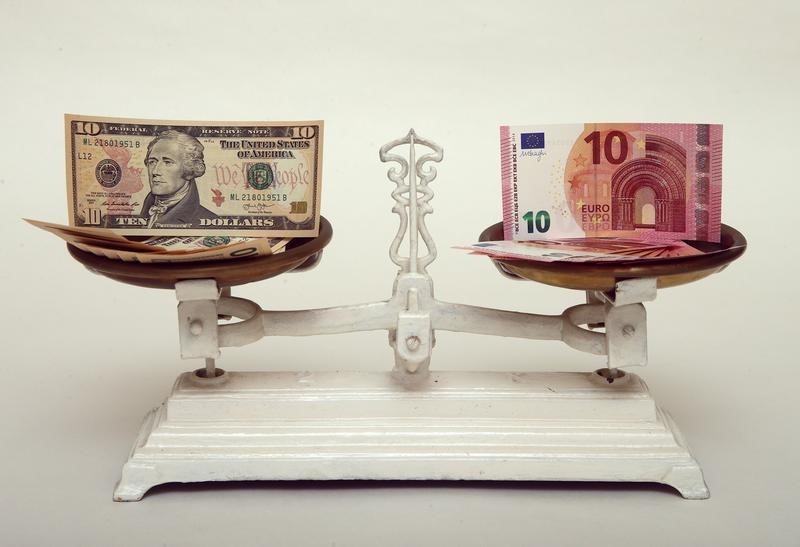By Shinichi Saoshiro and Ian Chua
TOKYO/SYDNEY (Reuters) - The euro slumped to a new 12-year low on Thursday, reeling from an unrelenting onslaught after the European Central Bank started its quantitative easing (QE) campaign, highlighting the monetary policy divergence between the euro zone and the U.S.
The 1 trillion euro bond-buying programme the ECB launched on Monday by has dented the common currency's appeal by driving yields of many euro zone bonds deeper into negative territory and others to all-time lows.
A 30-year German bond (DE30YT=RR) now offers a yield below that of a two-year U.S. Treasury note (US2YT=RR).
The euro fell as far as $1.0505
Furthermore, developments in Greece did the euro no favours, with Athens appearing to have made no headway in persuading euro zone partners to renegotiate terms of a 240 billion euro bailout.
The market awaited U.S. indicators including retail sales due later in the session to see if the latest data can reinforce the notion of an earlier interest rate hike by the Federal Reserve, a notion that has given the dollar such kick since last Friday's robust employment numbers.
The plight of the euro, which has coincided with a rise in euro zone equities with Germany's DAX (GDAXI) scaling record highs, drew comparisons with what the yen experienced when the Bank of Japan unleashed its own bond buying-driven QE scheme.
The BOJ began its current QE programme in April 2013 and enhanced it in October 2014. The dollar has soared from 93 yen to around 122 yen while the Nikkei share average (N225) has climbed a 15-year peak since the QE launch.
"The situation is identical to what has taken place in Japan, when investors like foreign players sold the yen and bought stocks. Under ECB's easing, prospects for euro zone shares are good while the euro looks bleak. Selling the euro and buying shares becomes a natural combination," said Koji Fukaya, president at FPG Securities in Tokyo.
Against sterling, the euro fell to its lowest in over seven years at 70.11 pence (EURGBP=R). It slumped to a near two-year trough 127.64 yen (EURJPY=R).
The dollar index (DXY) came within a whisker of 100.00 for the first time since April 2003. Versus the yen, the greenback traded at 121.64
Elsewhere, the New Zealand dollar advanced after the Reserve Bank of New Zealand sounded less dovish than markets had positioned for and kept interest rates steady at 3.5 percent.
"When you look through the statement, the threshold for cutting the cash rate right now is perhaps a little bit higher than what markets have been anticipating," said Nick Tuffley, economist at ASB Bank.
The kiwi fetched $0.7294
The Australian dollar traded at $0.7577

(Corrects Nikkei milestone in the eighth paragraph to 15 years from eight)